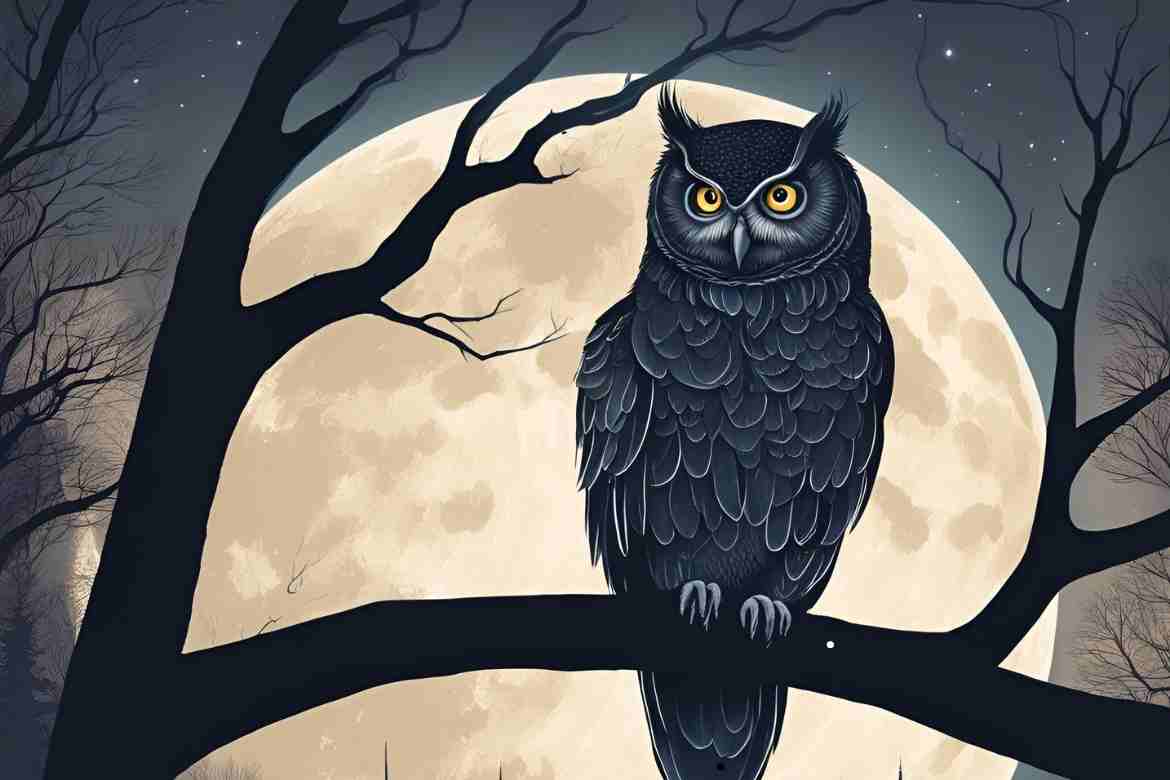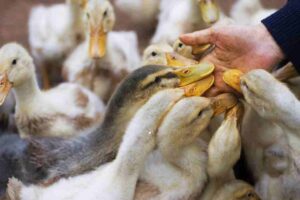What Do Owls Represent? Owls have long captivated human imagination, evoking a mix of wonder and fear. Their mysterious nature, nocturnal habits, and unique appearance have led to a variety of cultural interpretations and symbolism throughout history.
From ancient mythology to modern-day symbolism, owls represent a range of concepts and emotions. In this article, we will explore the rich tapestry of meanings associated with owls, examining their significance in different cultures, their representation in literature and art, and their place in nature.
The Cultural Significance of Owls

Ancient Civilizations and Mythology
Owls have been revered and feared by various ancient civilizations. In many cultures, they are associated with wisdom and knowledge, while in others, they symbolize death and the unknown.
- Egyptian Mythology: In ancient Egypt, the owl was linked to the goddess of wisdom, Ma’at, and the goddess of death, Lilith. The Egyptian owl, often depicted as a symbol of protection, represented both the night and the afterlife.
- Greek Mythology: The Greeks viewed owls as symbols of wisdom and were closely associated with Athena, the goddess of wisdom and warfare. The phrase “wise as an owl” stems from this connection, reflecting the bird’s role as a guardian of knowledge and insight.
- Native American Culture: Various Native American tribes hold differing views on owls. Some see them as protectors and guides, while others regard them as omens of death or bad luck. For instance, the Hopi tribe considers owls as messengers from the spirit world, embodying transformation and insight.
Modern Interpretations
In contemporary society, owls have retained their associations with wisdom and knowledge. However, they also symbolize various modern themes, such as mystery, intuition, and adaptability.
- Wisdom and Knowledge: In education and literature, owls are often used as mascots or symbols of learning, embodying the pursuit of knowledge. Schools and universities frequently adopt owls as their emblem, representing the importance of education.
- Mystery and Intuition: Owls are nocturnal creatures, operating in the dark and often elusive. This aspect has led them to symbolize intuition and the ability to see beyond the obvious. They encourage individuals to trust their instincts and delve into the unknown.
The Symbolism of Owls in Different Cultures
Western Culture
In Western cultures, owls are often associated with wisdom, but their symbolism can vary greatly depending on the context.
- Literature and Folklore: Owls frequently appear in folklore and literature as wise characters or mystical beings. Classic tales often portray owls as advisors or mentors, guiding heroes on their journeys.
- Halloween and Superstitions: In some contexts, owls are viewed as harbingers of doom or bad luck, especially in folklore surrounding Halloween. This connection arises from their association with the night and the supernatural.
Eastern Culture
In Eastern cultures, owls often hold different meanings compared to their Western counterparts.
- Chinese Culture: In Chinese mythology, owls are sometimes considered bad omens, associated with death and misfortune. However, they also represent protection and the ability to ward off evil spirits.
- Japanese Culture: In Japan, owls are seen as symbols of good luck and prosperity. The word for owl, “fukurou,” sounds similar to the phrase for “no hardship,” making them symbols of protection against misfortune.
African Culture
In various African cultures, owls embody different aspects of wisdom, spirituality, and protection.
- Symbol of Wisdom: Some African tribes view owls as guardians of wisdom and knowledge, believing that they possess insights into the spiritual realm.
- Spiritual Guardians: Owls are often seen as messengers between the living and the spiritual world, guiding souls and protecting communities from negative energies.
The Role of Owls in Nature
Ecosystem Importance
Owls play a crucial role in maintaining ecological balance. As apex predators, they help regulate populations of small mammals, insects, and other prey species.
- Natural Pest Control: By controlling rodent populations, owls contribute to agriculture by preventing crop damage and the spread of disease associated with pests.
- Indicators of Ecosystem Health:14-spiritual-meanings-of-hooting-of-owl are sensitive to environmental changes, making them important indicators of ecosystem health. Their presence can signify a balanced ecosystem, while their decline may signal ecological issues.
Adaptability and Survival
Owls are highly adaptable creatures, capable of thriving in diverse environments, from forests to urban areas. Their ability to hunt in low-light conditions showcases their unique adaptations, making them successful predators.
- Nocturnal Behavior: Their nocturnal nature allows them to avoid competition with other predators, enabling them to find food sources that may be less accessible to diurnal animals.
- Diverse Diet: Owls have a varied diet, feeding on small mammals, birds, and insects. This adaptability in diet contributes to their survival in changing environments.
Owls in Literature and Art
The spiritual meaning of owls has inspired countless works of art and literature, serving as symbols of wisdom, mystery, and the supernatural.
Literature
Owls appear in various literary works, often embodying traits associated with knowledge and insight.
- Harry Potter Series: In J.K. Rowling’s “Harry Potter” series, owls serve as messengers, connecting characters and delivering important news. The character of Hedwig, Harry’s owl, symbolizes loyalty and companionship.
- Aesop’s Fables: In many of Aesop’s fables, owls are depicted as wise characters who offer valuable lessons, reinforcing their association with wisdom and knowledge.
Art and Symbolism
Owls have been depicted in various artistic forms, from ancient carvings to contemporary paintings.
- Ancient Art: Ancient artifacts often feature owls as symbols of knowledge and protection. Greek pottery frequently depicts owls alongside Athena, emphasizing their connection to wisdom.
- Modern Art: Contemporary artists continue to explore the symbolism of owls, often using them to convey themes of mystery, intuition, and the unknown. Their striking appearance makes them popular subjects in modern art.
The Psychological and Emotional Symbolism of Owls
Owls also resonate on a psychological level, representing various emotions and concepts.
Intuition and Inner Wisdom
Owls are often seen as symbols of inner wisdom and intuition. Their ability to navigate darkness encourages individuals to trust their instincts and explore their subconscious.
- Self-Reflection: Owls inspire self-reflection and contemplation, prompting individuals to delve deeper into their thoughts and feelings. This connection to introspection can lead to personal growth and self-discovery.
- Embracing Change: The owl’s nocturnal habits symbolize the acceptance of change and transformation. Just as owls thrive in darkness, individuals can learn to embrace life’s uncertainties and challenges.
Guardianship and Protection
Owls are often viewed as protectors, watching over individuals and guiding them through difficult times.
- Symbol of Safety: In various cultures, owls are considered guardians that provide protection against negative energies and malevolent spirits. This aspect emphasizes their role as symbols of safety and security.
- Mentorship and Guidance: Owls can symbolize mentors or guides, offering wisdom and support during life’s challenges. They remind individuals to seek counsel from those with experience and knowledge.
Conclusion
Owls are fascinating creatures that hold deep symbolism across cultures and contexts. Their representation as symbols of wisdom, intuition, and guardianship speaks to their multifaceted nature. Whether viewed as harbingers of good luck or omens of misfortune, owls continue to inspire awe and curiosity.
In the end, the enduring fascination with owls reflects our collective desire for understanding and meaning in the world, reminding us of the beauty and mystery of nature. Whether as symbols of wisdom, intuition, or guardianship, owls hold a special place in the hearts and minds of people around the globe, inviting us to explore the depths of our own wisdom and the mysteries of life itself.
- Male Black Widow Spider Markings - March 23, 2025
- Mexican Red Headed Bird: A Brilliant Avian Wonder - January 16, 2025
- Can Turkeys Eat Bread? - January 15, 2025








